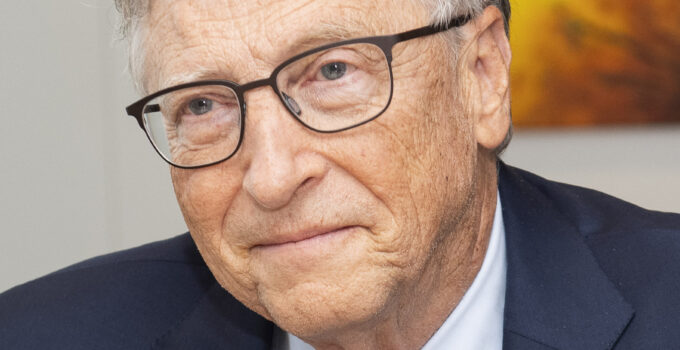What if your workweek only lasted two days?
That’s not just a dream. According to Microsoft co-founder Bill Gates, it could become reality — and soon. In a March 2025 interview highlighted by Fortune, Gates said that artificial intelligence (AI) could eventually make it possible for most people to work just 2 or 3 days a week.
It’s a bold prediction. But Gates believes that if society prepares the right way, AI could lead to more free time and better lives for everyone — not just job losses.
Let’s break down what he actually said, why it matters, and what it could mean for your future.
What Gates Said About the Future of Work
Speaking at a recent event in San Diego, Gates shared his thoughts on how AI is changing the world. He acknowledged that there’s a lot of fear — especially around automation replacing human jobs. But he doesn’t see AI as the enemy.
Instead, Gates sees it as an opportunity to rethink the workweek itself. He said that as AI handles more tasks, humans may not need to work as much. If handled correctly, we could shift to a future where “we ask people to work 3 days a week or 2 days a week.”
But this future depends on one major thing: how we distribute the wealth and productivity gains that AI creates.
It’s Not Just About Technology — It’s About Economics
Gates was clear that AI won’t magically fix everything. While the technology is moving fast, the real challenge is making sure the benefits reach everyone — not just the richest companies or individuals.
AI can make businesses more efficient and profitable. But if those profits only go to shareholders or CEOs, then regular workers won’t see any change in their lives. That’s why Gates emphasized the need for strong tax systems, smart regulation, and policies that share the gains.
He compared it to past innovations like tractors or computers. These tools boosted productivity, but the results weren’t always evenly shared. Gates believes we need to learn from that — and avoid repeating the same mistakes.
The AI Work Shift Is Already Starting
We’re already seeing AI reduce the time it takes to complete tasks. Tools like ChatGPT, Copilot, and other large language models are speeding up everything from coding to customer service.
In offices, AI is helping write emails, analyze data, and create presentations. In factories, it’s guiding robots and optimizing workflows. And in creative fields, it’s even helping people brainstorm, write, and edit content.
All of this means less time spent on repetitive work. But so far, that hasn’t translated into fewer work hours — just faster expectations. Gates is suggesting we think bigger. If AI lets us get more done in less time, why not reduce how much we work?
Could a 2-Day Workweek Actually Work?
It’s not as far-fetched as it sounds. Some countries are already testing shorter workweeks — like four-day schedules — with good results. Trials in Iceland and the UK have shown that workers are just as productive, and often happier and healthier.
Gates is pushing the idea even further: what if a normal job was just 16 hours a week?
The key is productivity. If AI makes one worker as efficient as three, then companies could meet their goals with fewer human hours. But again, the question is — will businesses pass that benefit on to workers, or just increase profits?
That’s why Gates says we need to rethink not just how we work, but how we value and compensate work in the age of AI.
What About Job Losses?
Gates didn’t deny that AI will cause some jobs to disappear. But he believes new roles will also be created — just like when past technologies replaced older industries.
The transition won’t be easy. Workers will need training, education, and support to shift into new types of jobs. And some industries — like transport, retail, and customer service — may face more disruption than others.
But Gates is optimistic. He sees AI as a net positive — if governments, schools, and companies prepare for it.
The Bigger Vision
At the heart of Gates’ comments is a hopeful idea: technology should make life better, not just faster or more profitable.
Imagine having five free days a week instead of two. More time for family, creativity, fitness, learning, or simply rest. That’s the future Gates wants us to work toward.
But it won’t happen by accident. Gates is calling for deliberate choices — better policies, more fairness, and a willingness to rethink the relationship between work and value.
What This Means for You
Whether you’re a student, a small business owner, or someone working a 9–5 job, this shift affects you.
If AI keeps advancing — and it will — you’ll likely see your industry change in the next few years. Some tasks may get easier. Others may disappear. The question isn’t just how to stay employed, but how to stay valuable in a world where machines do more.
It’s also worth thinking about how you’d use more free time — and what it would take to make that a reality in your life.
Even if a 2-day workweek sounds far away, the path to it starts now. And according to Gates, it starts with the choices we make — not the code we write.

Jordan Ellis is a business writer and digital strategist at Hustle Framework, focused on practical tools and actionable insights for entrepreneurs. Passionate about helping you make smarter business decisions.




